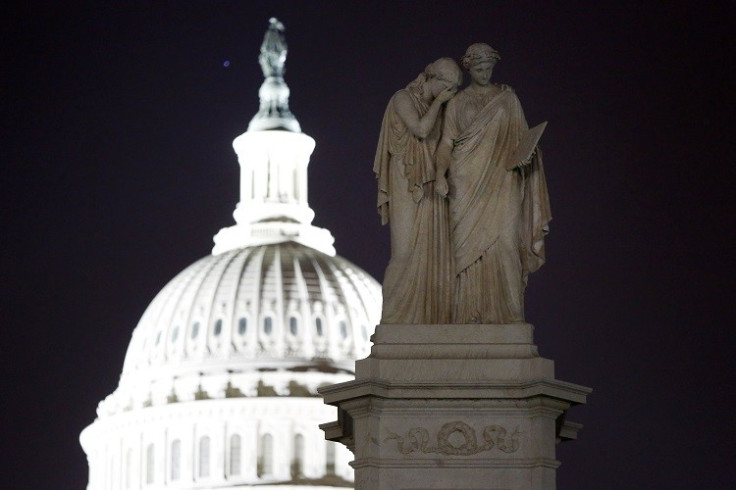US Government Shutdown: European Markets Not Fretting Over Temporary Closure

History tends to repeat itself, particularly when it comes to US lawmakers who are always at loggerheads on fiscal issues.
Back in 2011, they failed to reach an agreement on the debt ceiling which prompted a sovereign rating downgrade. At the end of last year, the lawmakers managed to agree in a tense 11<sup>th hour deal to avert the majority of the fiscal cliff and in the second quarter of this year, they failed to tackle the sequestration cuts.
Overnight, lawmakers, House of Representatives and the Senate failed to bridge their difference, resulting in a partial government shutdown with the closure of a number of federal agencies and around 800,000 federal employees sent home on unpaid leave.
This is the first government shutdown in 17 years and couldn't come at more difficult time for the Federal Reserve who since summer this year has been considering pulling the plug on the quantitative easing problem.
Now, the differences between Democrats and Republicans is political, not really an economic issue and more of a reflection on the strong opposition President Barack Obama faces in his second term in office.
Obamacare
Obama's healthcare programme is highly controversial with many Americans, politicians and the public alike and seems to be one of the main sticking points between the two parties. Obama also has failed to form strong bi-partisan ties with the Republicans, impeding the passage of his healthcare programme which has now been delayed as lawmakers refusing to pass a short-term budget.
The US Treasury will run out of money by 17 October, so the pressure is certainly on for lawmakers to come to some form of agreement.
At the moment, financial markets are attempting to work out what sort of agreement this could be? We know a fresh budget must be formulated in order to raise the debt ceiling - which means for now; it is unlikely the US economy will default on debt.
That means, lawmakers will have to find some common ground but will it be a viable and credible solution or patch-work bandages to kick the can further down the road?
Probably the latter. US politicians have a knack for that - It has become their forte.
And, you can't really blame them when their country sits on a jaw dropping debt pile which is expected to be around $21.291tn in 2014.
So, the dithering, the delays, the polarisation on a number of issues is to be expected which means the propensity to kick the can down the road is high as it's well known that not all issues can be agreed upon.
But, what is known in US Congress is the importance to reach an agreement this time around as failure to do so can result in a material hit of US economic growth.
Financial Markets
In the coming days, financial markets are expecting a resolution to restart the government with a broader agreement before the 17<sup>th to raise the debt ceiling after agreeing on a fresh budget. Analysts across the world have attempted to measure how much the shutdown could drag on US economic growth.
With forecasts ranging from 0.9% shaved off from fourth quarter GDP to just 0.2%, market participants are sure that US economic growth will feel the pinch.
But, as long as it's a pinch and not a punch, investors are not fretting and you can see that from price-action this morning across European markets who feel rather sanguine about this shutdown so far.
See, even though US economic growth may get a knocking on the back of this, for markets addicted to the Federal Reserve's liquidity programme, quantitative easing, this shutdown has just bought risk-junkie investors some precious time to enjoy the current mammoth of easy Fed cash still floating around in the global money markets.
The Fed intended to taper quantitative easing (QE), announcing their exit strategy during the summer of 2013, gearing the market up for a withdrawal only to not executing it last month when investors were almost convinced tapering was on the cards.
Federal Reserve head Ben Bernanke cited a number of reasons from rising borrowing costs to slow momentum in the labour market but what stood out for investors was the showdown between US lawmakers this month.
With a number of US government agencies closed, macro economic data will not be complied or released, such as the most watched gauge of the labour market, the monthly nonfarm payrolls which was due to be released the Friday. Bernanke will be stepping into the next policy meeting wearing a blindfold in that case, holding back from tapering.
Until the fiscal issues in the US are resolved; QE infinity, and beyond.
Ishaq Siddiqi is a market strategist at ETX Capital
© Copyright IBTimes 2025. All rights reserved.





















